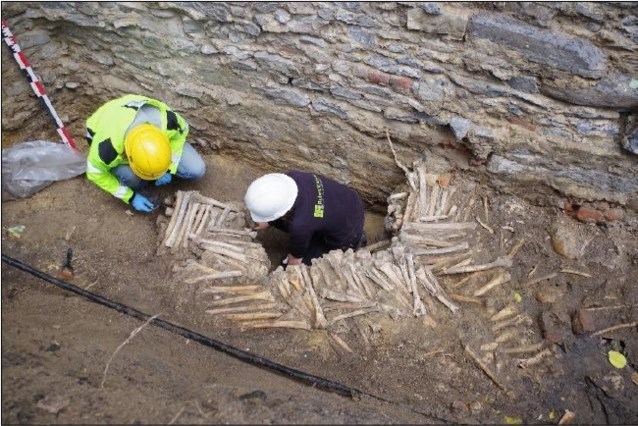Archaeologists working in and around Saint-Bavo’s cathedral in Ghent have made a macabre discovery – walls constructed entirely out of human bones.
“This find is unique in Belgium,” said a spokesperson for the archaeological team from Ruben Willaert bvba in Bruges.
The walls are made mainly of the thigh and shin bones of adults. Between the walls, the space is filled with skulls, many of them shattered.
Above that level, meanwhile, full human skeletons have been uncovered. “So the graveyard must have still been in use for some time after the walls were built.”
The works are being carried out in preparation for the construction of a new visitor’s centre in the cathedral, dedicated to the Jan Van Eyck altarpiece, the Adoration of the Mystic Lamb.
“This is a phenomenon we’ve not yet come across here,” said project leader Janiek De Gryse. Elsewhere other examples have been found, including the catacombs of Paris. But the Ghent find will not become a tourist attraction, the team said. The bones will be removed.
The bones appear to date from the second half of the 15th century. “For the moment we would place the actual construction in the 17th and 18th century, although there’s a great deal of research still to be done.”
Another question to be answered is why the walls were built in the first place. They appear to have been constructed at a time when part of the graveyard was being cleared, suggesting the bones were from graves that were being removed to make way for new ones.
“When clearing a churchyard, the skeletons cannot just be thrown away,” De Gryse explained. “Given that the faithful believed in a resurrection of the body, the bones were considered the most important part. That is why stone houses were sometimes built against the walls of city graveyards: to house skulls and the long bones in what is called an ossuary.”
Alan Hope
The Brussels Times

